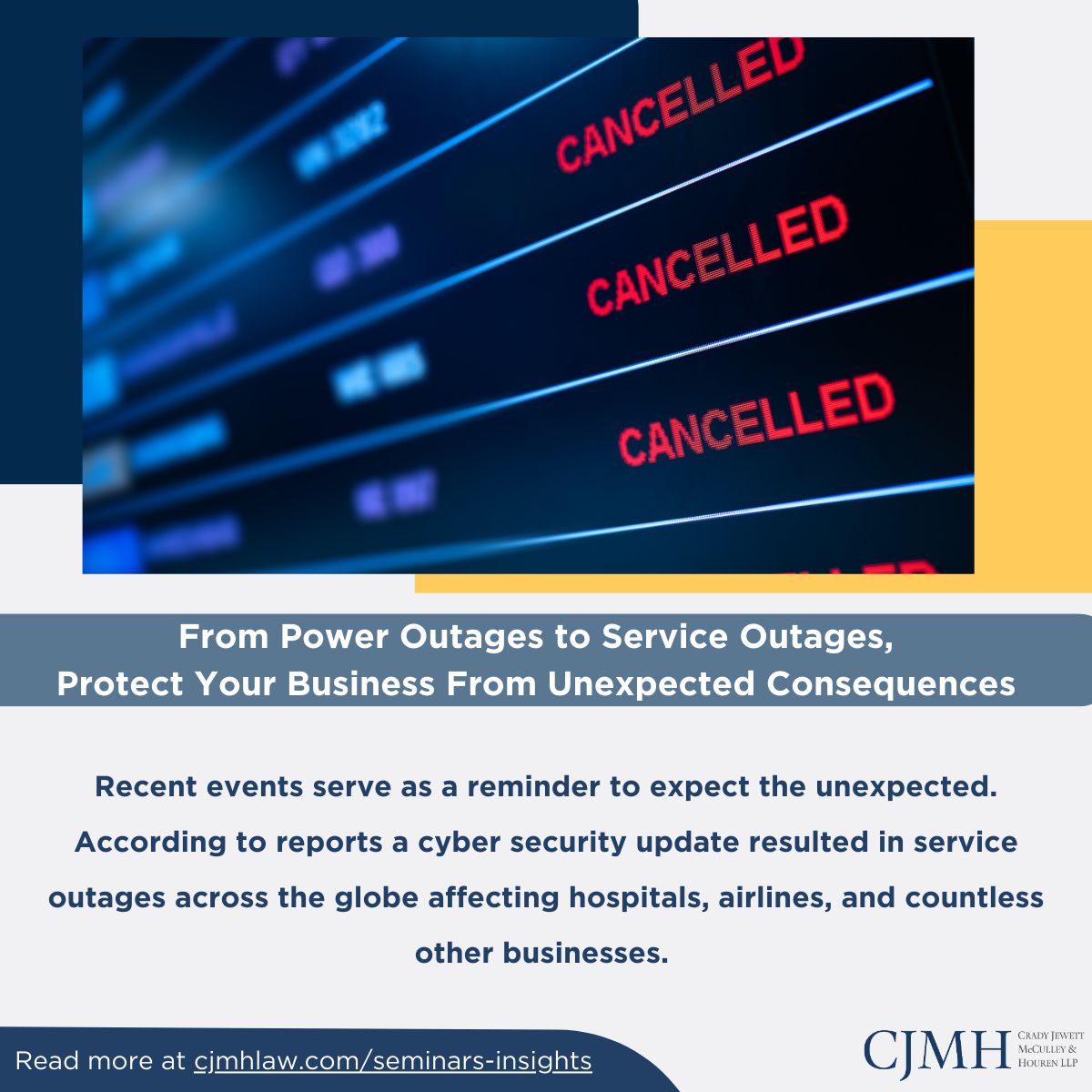
Recent events serve as a reminder to expect the unexpected. According to reports a cyber security update resulted in service outages across the globe affecting hospitals, airlines, and countless other businesses. Here in Houston, we have already had two major weather events this summer that have left families and businesses without power for days on end. To prepare for the unexpected, businesses should adopt best practices for resiliency, obtain adequate commercial and cyber insurance coverage, but also ensure their contracts adequately and appropriately mitigate risk and allocate the costs of liability. It’s also critical to reasonably limit liability, and where possible disclaim consequential damages.
Consider a technology business that is contractually obligated to provide continual service to its customers, but is not able to provide services either because of a weather event or a service outage caused by a third party. In the case of weather events, properly drafted “force majeure” provision may prevent liability for failure to provide a service when “acts of God” such as weather, pandemic, or war prevent that service from being performed. However, a third-party service outage likely is not an act of God. Businesses should consider whether their contracts guarantee continuous service, or remedial work within a very limited period of time. What remedy does that service provider have if they are prevented from providing services to their customers, clients or patients because of an outage beyond their control?
For this reason, it is prudent – where possible – to limit liability under a contract, and disclaim consequential damages.
An example of consequential damages would be the potential liability of a cyber security provider whose customer incurs liability because that customer cannot provide services to it’s own customers. In the case of a global outage, the imagination can run wild with potential consequential damages.
As companies enter into contracts, it is wise to have a robust conversation with their counsel about the nature of their business, the predictable risks, and even the statistically remote risks. Sometimes even those unlikely events occur but could have enormous financial consequences. What’s in your contracts protecting you from unlimited loss?
Doug McCullough, Partner – [email protected]
